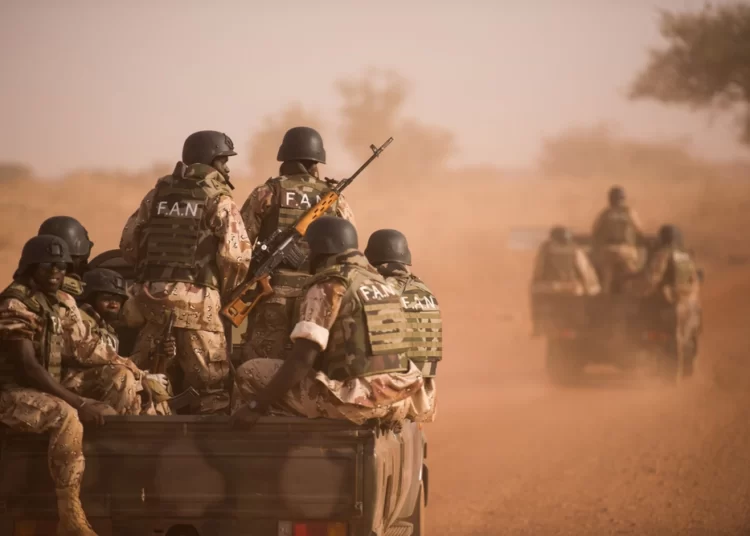A lack of transport and attack helicopters in sufficient numbers is seriously impeding the 1st Expeditionary Force of Niger (EFoN), the country’s premier anti-terrorism unit from harnessing its full combat lethality. EFON has been fighting violent extremist organisations (VEO) since early this decade.
Nigérien soldiers along with French paratroopers, and US advisors continue to combat the Islamic State in the Greater Sahara (ISGS), an offshoot of the terrorist group that has taken over parts of Iraq and Syria. For the past five years, ISGS has terrorized villages and communities, stealing cattle and food, while burning homes and displacing almost 30,000 people, according to the United Nations.
ISGS gained international notoriety after ambushing and killing four Americans in October 2017. The group killed 55 people in neighbouring Burkina Faso in June, eight Nigérien gendarmes were killed and 33 injured in an extremist assault on Niger’s side of the border.
The EFON is at the forefront of the fight to rid the country of ISIS, and other insurgent groups. the expeditionary force carries out regular raids and patrols to dislodge ISIS from the area. However, due to limited helicopter support, the force counter-terror force is not making as rapid gains as hoped.
Niger’s air force has a few combat aircraft in its inventory, including three ex-French army air corps Gazelle helicopters, a Russian-built Mi-24 gunship, and two Mi-17 transport helicopters. Having a dedicated transport and attack helicopter support group will allow the EFON to cover distances the enemy cannot, as well as provide close air support for the special force elements.
EFON troops mostly rely on French helicopters and air support stationed in Mali.
The cash-strapped Nigerien government is left with fewer options as it can either procure new ones or repurpose old stock. As a former French colony that gained its independence in 1960, Niger is one of the poorest and least-developed countries in the world. Subsistence farming and livestock make up Niger’s economy, with 80 per cent of the population living in poverty, partly because of massive deforestation and persistent heatwave from climate change.
With the growing cross-border threats of terrorism in West Africa, the Niger army has benefited from training exercises with France and the U.S. Such as the U.S.-led Flintlock Exercise which it hosted in 2014. In September 2020, the US military brought in Relyant Global to firm up the training of Niger’s special operations forces. The American company Relyant Global provided training and support to Niger’s special intervention battalions on behalf of the US government.





